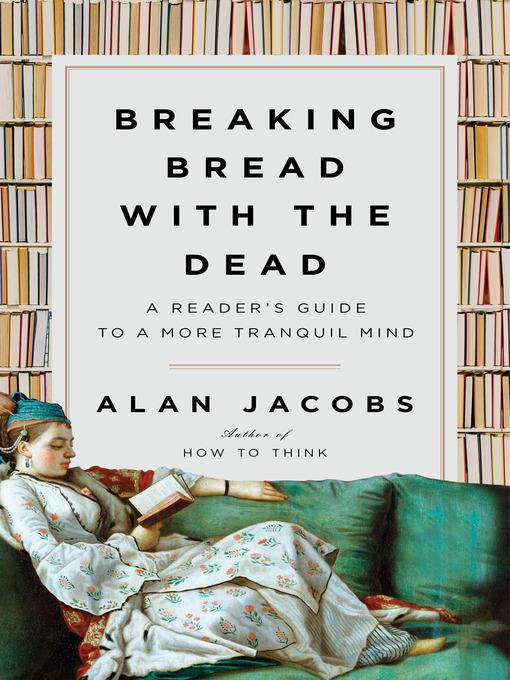
Breaking Bread with the Dead
A Reader's Guide to a More Tranquil Mind
کتاب های مرتبط
- اطلاعات
- نقد و بررسی
- دیدگاه کاربران
نقد و بررسی

May 25, 2020
In exploring how texts from the past can inform one’s understanding of the present, Jacobs (How to Think), a humanities professor at Baylor University, tackles a promising subject matter with uneven results. Believing that wider perspectives are needed than those provided by today’s world of “informational overload,” he urges a productive engagement with figures and texts from the past and, in particular, “learning to know them in their difference from, as well as their likeness to, us.” Jacobs presents an intriguing cast of people who did this, from Simone Weil to Frederick Douglass; in one of the book’s highlights, he delves into Douglass’s famous July 4th oration on why the founding fathers, though flawed by their failure to eradicate slavery, were “great in their day and generation.” Jacobs’s ideas sometimes feel rehashed rather than enlarged from chapter to chapter, and his language unnecessarily academic—rather than simply stating that a different perspective will make a person more well-rounded, for instance, he writes that a wider “temporal bandwidth” will lead to greater “personal density” (two terms taken from Thomas Pynchon’s Gravity’s Rainbow). Nevertheless, the ideas are stimulating, and his somewhat unsatisfactory book will still give thoughtful readers a jumping-off point for further reflection. Agent: Christy Fletcher, Fletcher and Company.

June 15, 2020
A scholarly argument for engaging with writers from the past as a life-affirming and consciousness-building practice. In our frenetically paced society, we are continually distracted and influenced by a surplus of information, which can lead to the loss of the capacity to process thoughts beyond the context of the present moment. In his latest, a follow-up of sorts to The Pleasures of Reading in an Age of Distraction and How To Think, Jacobs considers how "information overload and social acceleration work together to create a paralyzing feedback loop....There's no time to think about anything else than the Now." The author steers readers to the enriching wisdom that can be discovered through voices from the past, referencing a broad assortment of writers and philosophers, including Homer, Horace, Virgil, Simone Weil, Edith Wharton, Italo Calvino, and Ursula K. Le Guin. Jacobs instructs readers on how to confront and appreciate what these writers have to offer us within the context of their times rather than through the lens of our present-day circumstances, when "the not-Now increasingly takes on the character of an unwelcome and, in its otherness, even befouling imposition." He builds a convincing case for needing to expand one's "personal density," a term he derived from Thomas Pynchon's novel Gravity's Rainbow. "We lack the density to stay put even in the mildest breeze from our news feeds," writes Jacobs. "Temporal bandwidth helps give us the requisite density: it addresses our condition of 'frenetic standstill' by simultaneously slowing us down and giving us more freedom of movement." The author offers Frederick Douglass and Zadie Smith as examples of writers adept at expressing personally held convictions while also appreciating the ideas of past writers who didn't necessarily live according to these same standards. "That Keats was an outsider," writes Jacobs, "with no clear path into the literary world was key to his appeal for Smith." A persuasive, if sometimes overly academic, case for exploring writers from the past.
COPYRIGHT(2020) Kirkus Reviews, ALL RIGHTS RESERVED.

























دیدگاه کاربران